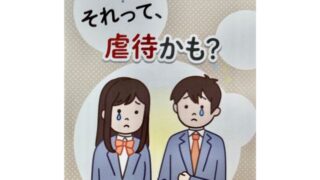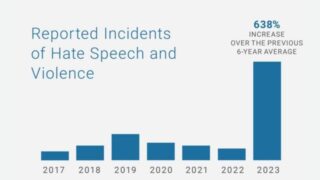The Religious Corporation Act should be strictly interpreted to protect religious freedom. The Family Federation does not meet the criteria for dissolution.
by Tatsuki Nakayama
Article 2 of 4. Read article 1.


Background of Appointment
I am a lawyer who is a third-party participant in the reform of the Family Federation for World Peace and Unification (formerly the Unification Church, hereinafter referred to as the “Family Federation”). First, I will explain why I am taking on this matter as if “picking up chestnuts in the fire.”
I am not a believer in the Family Federation, and I had no connection with the Family Federation until the summer of last year (2022). That is when a lawyer friend of mine in Japan approached me and asked, “I cannot find anyone to take this case. Would you be willing to take this case for the Family Federation?”
I accepted the offer, but since it is an organization with a bad reputation, I was hesitant to take it on. If it was a clear antisocial organization, such as a criminal operation, I would not defend it. However, I did not recognize that the Family Federation was a clear antisocial organization. In July last year, then-LDP Chairman of General Affairs Tatsuo Fukuda said that he “doesn’t know what’s wrong” with having a relationship with the Family Federation, and I felt the same way.
Even defendants charged with any heinous crime have the right to a fair trial, and any entity has the right to justice. A lawyer is in a profession that proudly undertakes “dirty work” for the sake of legal justice in which anyone is brought to justice through due process. I was willing to take on the work that someone had to do, so I was prepared to take on criticism and give advice on behalf of the World Headquarters of the Family Federation from a third-party standpoint.
By the way, my specialties are overseas legal affairs, compliance, and integrity. When I work with my client companies, I tell them, “Have the courage to speak out against injustice.” That being said, if I don’t have the courage to take up this case, I will be a hypocrite who deserves to perish as a human being. So, I work with the spirit of “Even though thousands of people go against me, as long as I am true to my heart, I should continue my path.”
Religious hate
It has been less than a year since I got involved with this case, but no matter who I meet in the Family Federation, I have never seen a so-called bad person. Consequently, it does not make sense that it continues to be called an antisocial organization in the media.
The public continues to use derogatory terms such as “cult” to criticize the Family Federation. However, such religious hate speech (religious hate) is strictly prohibited, as “Any advocacy of … religious hatred that constitutes incitement to discrimination, hostility … shall be prohibited” under Article 20(2) of the International Covenant on Human Rights, which has been ratified by Japan.
I feel righteous indignation at the media, which incite religious hatred, and the government’s stance, which seems to have been influenced by it, from the perspective of religious freedom and legal justice. In particular, as a legal professional, I cannot help but feel a strong sense of discomfort that the pros and cons of a dissolution order—which should be a pure legal interpretation of the Religious Corporations Act—is treated like a political matter. In a country under rule of law, the pros and cons of a dissolution order should be determined in accordance with the law.
The Ministry of Education, Culture, Sports, Science and Technology (MEXT) has exercised its right to question the Family Federation seven times and seems to be looking for an opportunity to request a dissolution order. However, from a legal point of view, it cannot meet the requirements of a dissolution order at all. Here’s why.
Purpose of the Religious Corporations Act
The Religious Corporations Act, enacted in 1951, was intended to strictly protect religious freedom due to remorse for pre-war religious persecution. Therefore, the Ministry of Education, Culture, Sports, Science and Technology (MEXT), which has jurisdiction over religious corporations, should show more restraint in the exercise of its authority with them, compared to other, secular corporations.
Section 81 of this Act, which provides for a dissolution order, also stipulates that a dissolution order is issued only when an act is “clearly” recognized as being “extremely” contrary to the public welfare. This is a stricter dissolution requirement than that of other legal entities, such as joint-stock companies. In this way, compared to other corporations, it is supposed to be difficult to issue a dissolution order to a religious corporation in the first place.
Therefore, in 72 years that have passed since the enactment of the Religious Corporations Act, there have been only two religious corporations that have been ordered to dissolve, including Aum Shinrikyo. Even in the Supreme Court ruling on the dissolution of Aum Shinrikyo, it was carefully held that the dissolution was “necessary and unavoidable.”


There were only about 1,000 followers of Aum Shinrikyo. On the other hand, there are about 600,000 believers of the Family Federation nationwide. I would like you to carefully examine again whether it is really “necessary and unavoidable” to deprive these believers of their religious freedom and order the dissolution of their religious corporation.
Is it worse than Aum Shinrikyo?
At the Budget Committee of the House of Representatives in October 2022, Prime Minister Kishida changed his interpretation overnight regarding the “violation of laws and regulations” as the requirement of the dissolution order.
On the 18th of the same month, he stated that the “law” is limited to “criminal law, etc.” and that “illegal acts of the Civil Code do not fall (into this category),” following the interpretation of the Tokyo High Court in Heisei 7 regarding Aum Shinrikyo in 1995.
However, on the following day, October 19, Prime Minister Kishida changed his view and stated, “If the organizationality, maliciousness, and continuity of the misconducts are revealed, then the tortious acts under the Civil Code may fall into this category.”
It is said to be the first time since the end of World War II that a Prime Minister changed the interpretation of a statute in one day.
Aum Shinrikyo killed 29 people and caused about 6,500 victims, and 192 believers, including its leader, were prosecuted, 13 of whom were sentenced to death. It is quite different from the Family Federation.
As for the Family Federation, there were only a few criminal cases more than 10 years ago in which companies run by believers were accused of violating the Act on Specified Commercial Transactions. No one was killed, and in its nearly 60-year history, religious activities of believers have never been criminalized as fraud, intimidation, or confinement. Although the alleged “spiritual sales” have been condemned, there has never been a case in which a believer’s actions have been rescinded due to fraud or intimidation, not only in criminal cases but also in civil cases.
In this way, if we compare Aum Shinrikyo and the Family Federation, it should be impossible to interpret the requirement for dissolution more broadly for the Family Federation than for Aum Shinrikyo. In the case of Aum Shinrikyo, dissolution was attributed to “only criminal cases.” Nevertheless, in the case of the Family Federation, how in the world can we interpret “including civil cases”?


Any decision contrary to judicial precedent would infringe on the freedom of religion stipulated in the Constitution. Given the separation of powers and the constitutional independence of the courts, Prime Minister Kishida cannot have the authority to change the interpretation of precedents.
“Laws” do not include the Civil Code
I will add a little legal explanation to the point that “laws” do not include the Civil Code. Certainly, since “laws” refers to “law” and “order,” the Civil Code can also be included in “law” from a literal interpretation alone.
However, the Religious Corporations Act was enacted to protect constitutional religious freedom in the first place. Therefore, Articles 1 and 85 of the Religious Corporations Act stipulate that the provisions should be interpreted in a way that protects freedom of religion.
In particular, the dissolution of a religious corporation is a serious act that extinguishes legal personality. Even if the corporation is dissolved, individual believers can continue their religious activities for the time being, but due to dissolution, all rights—such as ownership of worship facilities and real estate that the Family Federation has acquired so far—will be lost.
In addition, now that criticism of the Family Federation is already strong, believers are exposed to discrimination, such as not being able to get a job, being bullied, and not being able to get married. Once the trial of the dissolution order begins, the believers will be subjected to even more severe social condemnation. This condemnation will last at least ten years. So, the initiation of the trial of the dissolution order means “social death” for believers.
For this reason, the “violation of laws and regulations” as the requirement of the dissolution order should be a strict and rigorous requirement to be directed at strong social condemnation, which deserves the sanction of extinction of legal personality. With that in mind, the Civil Code is not included here.
Let’s consider a concrete example. Article 199 of the Penal Code states, “A person who kills another person is punished by the death penalty…” Therefore, we can understand in advance that we should not kill people because the act or consequences of “killing people” are clear. In this way, the “laws” as a requirement for the dissolution of a religious corporation must also be able to predict what is wrong. Otherwise, the constitutional religious freedom is violated as “surprise.” This is the due process requirement guaranteed by the Constitution.
However, if the Civil Code is included in the “laws,” it will be a “surprise.” This is because even if you look at the articles of the Civil Code, you will not know “what is wrong.”
For example, Article 709 of the Civil Code, which defines torts, states “intentionally or negligently infringes the rights or legally protected interests of others.” Reading this, you will not know what is forbidden. A case is contested in civil court and takes several years to settle. In other words, it may take a few years to determine whether an act is tortious or illegal. Thus, criminal and civil law are completely different in that prohibited acts can be predicted or not.
The government and the Ministry of Education, Culture, Sports, Science and Technology (MEXT) seem to interpret that the requirement of three elements of “organizationality, continuity, and maliciousness” can lead to a violation of “laws and regulations.” However, vague “organizationality, continuity, and maliciousness” alone does not tell us what kind of actions are condemned. Thus, from the viewpoint of due process and clarity, it cannot be interpreted that “laws” include the Civil Code.
In fact, the dissolution requirements of the Companies Act and the General Incorporated Association Law enacted after 2005 limit them to “acts that violate penal laws and regulations.” The Religious Corporations Act is an old law that was enacted 72 years ago, so it is written vaguely just as “laws.”
As mentioned above, the Family Federation, which has not violated the Penal Code, has not committed any “violation of laws” in the requirement of the dissolution, so a dissolution order cannot be issued.









